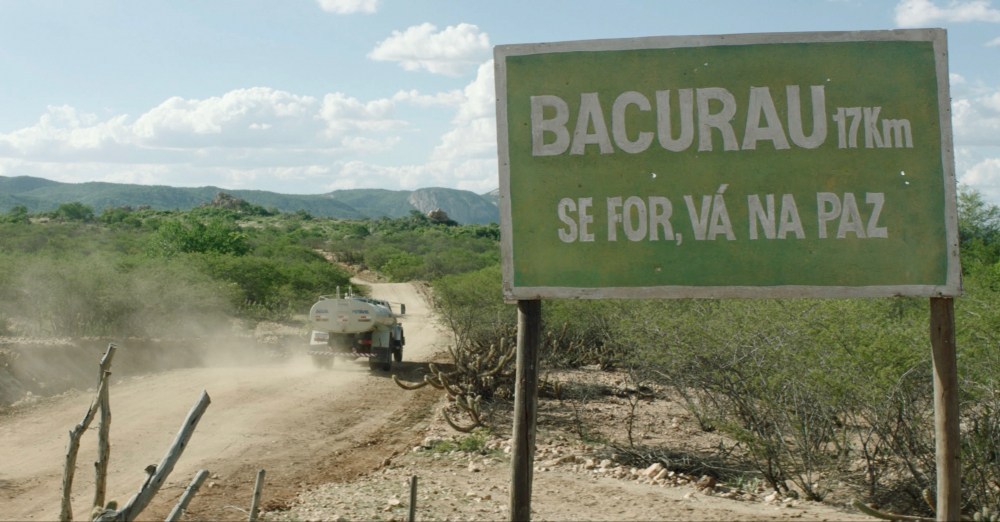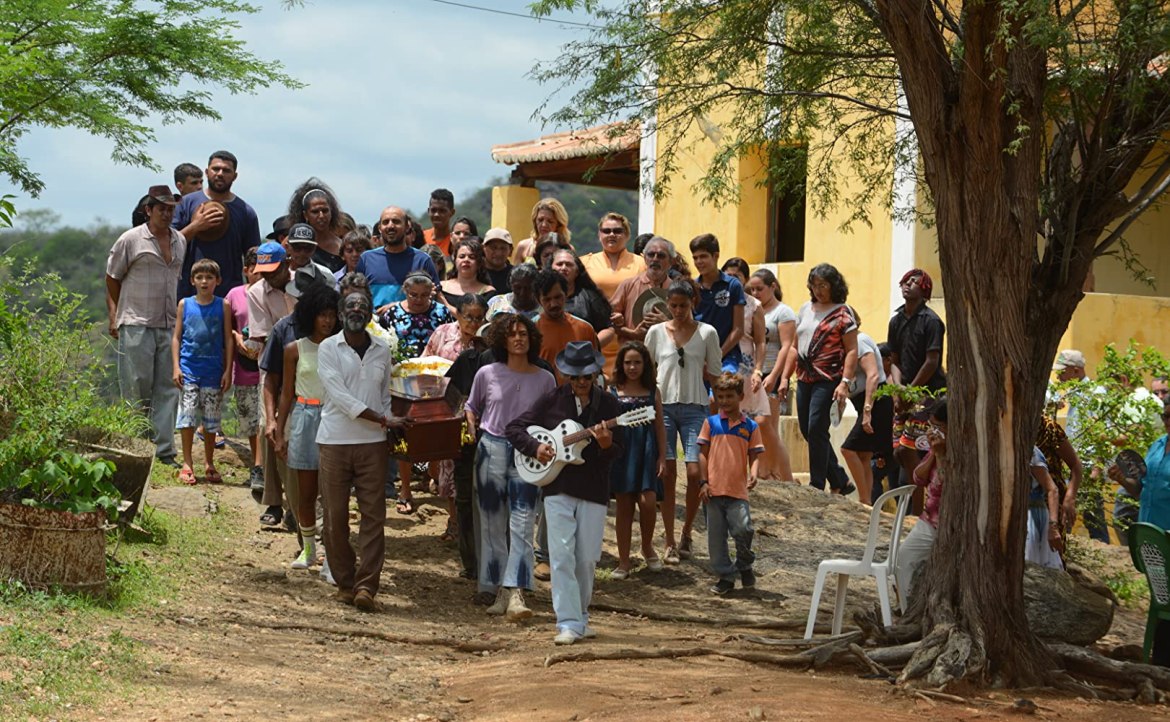‘Bacurau’ Review: A Poignant and Violent Tale of Resistance
After premiering in Cannes earlier this year, Bacurau has been eliciting uproarious reactions from crowds in its home country of Brazil since its release in August. With rallying political cries echoing in theatres immediately before and after the screenings, Kléber Mendonça Filho & Juliano Dornelles’ latest is proving to be a film viscerally resonating with those closest to the reality it depicts. It’s an incendiary, angry film — and one in which its immediate effects on the audience come from real frustrations with the state of Brazilian society and its current fascist government.
But such a reaction is also earned through Mendonça Filho and Dornelles’ masterful control over the film’s dramatic pulse. The resounding political statement that Bacurau packs is one told within the framework of an epic narrative that feels as big as any blockbuster. Throughout its sprawling 132-minute runtime, the tones change, genres are blended in, and stakes get heightened with each plot-twist, as the film builds with increasingly loud murmurs until it explodes with an effervescent climax.
The film is a tale of resistance of the people of Bacurau — a small, poor town in the Brazilian north-eastern Sertão, in which a very tight, enclosed community live. They do so very much by their own rules, finding in themselves the strength to persevere as independently as possible. When an important matriarchal figure in Bacurau, Carmelita, dies of old age, this community must find a way to regroup, all while outsider imperialist forces — a group of American soldiers backed by the Brazilian government — are threatening their own livelihood and existence.

At first, one of the most admirable aspects of Bacurau is how the directors hone in on the customs and day-to-day life of this community in more of a social-realist style before the film devolves into genre chaos. By doing so, we gain a deep affinity for its diverse cast of characters and their tight-knit familial bond —be it the town doctor Domingas (played by veteran actress Sónia Braga), the local schoolteacher Plinio (Wilson Rabelo), or Teresa (Barbara Colen) who we see return home for Carmelita’s funeral. We also see how Bacurau deeply cares about educating new generations and preserving their own history, with the town’s focal points being their local museum and a small library, keeping the people wary and informed of forces of power that don’t have the community’s best interests in mind.
When these invading forces come, they are ingeniously telegraphed through a sense of aesthetic dissonance, as the dirt road ridden landscape of Bacurau gets suddenly occupied with drones and other strange tech devices circling the town. Bacurau is thus wiped out from online maps and satellite photos, as if any memory of the town’s existence is doomed to disappear forever in the minds of the so-called “civilized” world. With this, we are also reminded that Bacurau is a story that takes place in a near-future – every time these forces make their presence felt, even indirectly or from a distance, they carry an inevitable sense of dystopia to be brought down to Bacurau.
As the American soldiers (chiefed by Udo Kier’s character, Michael) draw closer to the village, fields get bloodied and lives are taken, leaving Bacurau with no choice but to go to war for their own self-perseverance —with a non-binary cold-blooded killer named Lunga (Silvero Pereira) leading the local forces. For the people of Bacurau, each day turns into a fight for survival and an act of resistance against these oppressive forces of power that want to erase their history and take their lives in service of imperialist, white-supremacist ideals of what western civilization should be. The film, initially a portrait of a community entering tough times, necessarily shifts into an all-out violent and ugly neo-western, with tinges of sci-fi dystopian aesthetics. The result is a pulpy, bloody, fast-paced finale, but one that leaves a heavy mark on its audience regardless.

In a time where minorities are being silenced and shunned from Brazilian society, and films tackling issues of inequality and imperialism are receiving less and less financing from Jair Bolsonaro’s extremist right-wing government, Bacurau’s insistence on emboldening these voices and representing their acts of resistance reveals a poignant power to the film, especially in its scenes of rebellion.
Bacurau is not only one of the films this year that speaks the most about the dangers that marginalized communities face today, but also one that boldly dares to speak the loudest, within a political conjuncture that only wants it to remain shut. It is a cultural juggernaut and one of the year’s essential films.
★★★★½
To help us continue to create content, please consider supporting us on Ko-Fi.


